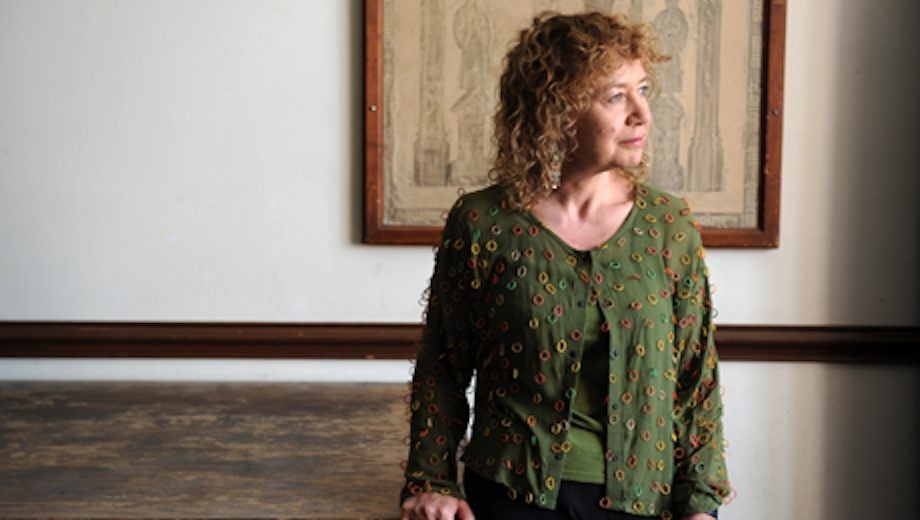The novel is one of the most protean literary forms in the English language, spanning mysteries to metafiction. This fall, a fittingly versatile scholar, Maud Ellmann, became the inaugural holder of a new endowed chair dedicated to the study of the form, the Randy L. and Melvin R. Berlin Professorship of the Development of the Novel in English.
The Berlins made a $2 million gift to the Division in 2007 to establish the chair for “a professor who specializes in the study of masterpieces of the novel in the English language, of which there are so many glorious examples,” says Randy Berlin, AM’77. Three modernist masters of the form are the focus of Ellmann’s forthcoming book, The Nets of Modernism: Henry James, Virginia Woolf, James Joyce, and Sigmund Freud. She launched her publishing career with a book about poetry, The Poetics of Impersonality: T. S. Eliot and Ezra Pound (1987).
In between, Ellmann authored The Hunger Artists: Starving, Writing, and Imprisonment (1993), which looks at the links between eating, starving, speech, and writing in cultural expressions as disparate as eighteenth-century narrative fiction and twentieth-century acts of political protest. Her third book, Elizabeth Bowen: The Shadow Across the Page (2003), reevaluated the Anglo-Irish writer in the light of later critical approaches such as Irish and feminist studies.
Ellmann was born and raised in Evanston, Illinois, the daughter of the late critic and biographer Richard Ellmann and the feminist essayist Mary Ellmann. When she was a teenager, the family moved to England, where she attended college at Cambridge and graduate school at Oxford. Many different critical styles are represented here; the department doesn't have an orthodoxy. She taught at the Universities of Southampton and Cambridge before moving back to the U.S. in 2005 to accept a named professorship at the University of Notre Dame. Ellmann joins the Department of English Language and Literature at Chicago with her husband, the poet and critic John Wilkinson, who is the University’s first Professor of the Practice of the Arts. She spoke to Tableau shortly after their arrival in July.
On coming to Chicago: I’m thrilled to be working at this great university in this wonderful city. It’s hard to think of any school I’d rather be at. The English Department is particularly appealing to me, partly because of its cutting-edge, interdisciplinary approach. And many different critical styles are represented here; the department doesn’t have an orthodoxy. It’s a group of extremely talented individuals who have a great deal to say to each other without necessarily toeing the same line.
On becoming a professor of the novel: It’s an exciting idea. My first book was on poetry, but since then most of my work has focused on fiction, both novels and short stories. An important issue in literary studies right now is globalization and the emergence, or reemergence, of other literatures in English besides those based in Britain and America. I feel a responsibility to open up these other traditions to students.
On her forthcoming book: The Nets of Modernism will be published in October, after many years’ gestation. The book considers the relation between psychoanalysis and literary fiction in the first half of the twentieth century. It compares Freudian case histories with novels—looking, for instance, at disruptions of chronological time, which are so prominent both in dreams and the workings of the unconscious and in modernist fiction, where narrative tends to be a spiral rather a straight line.
On her favorite contemporary novelists: J. M. Coetzee is, for me, one of the most important novelists writing in English now. Other writers I enjoy include Zadie Smith, Tom McCarthy, and Barry McCrea. My sister Lucy Ellmann is a novelist, as well. She writes witty, quirky, sometimes macabre novels about being a misfit—Dot in the Universe (2004) and Doctors and Nurses (2006) are two recent ones. She’s been a harsh critic of me and my work, but she’s also very funny about it.
On teaching at Chicago: In winter quarter I’ll be teaching part of a Core sequence and an undergraduate course on Psychoanalysis and Narrative. Besides looking at novels and case studies, we’ll study some Hitchcock movies: Marnie, the most explicitly psychoanalytic of his films, and Rear Window and Vertigo. In spring quarter I’m teaching British Fiction in World War II. We’ll read Bowen, T. S. Eliot’s Four Quartets, and some Blitz literature, for example James Hanley, Henry Green, and Patrick Hamilton, who writes brilliant novels about civilian life during the Blitz. His specialty—in life and art—is drinking binges!

